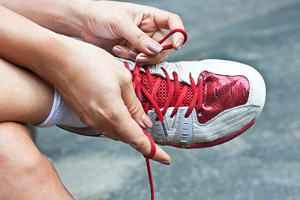
Running shoes are the holy grail for many fitness enthusiasts, but with so many options available, finding the right pair can be overwhelming. Understanding the different types of running shoes will make the selection process smoother. Neutral cushioned shoes are ideal for runners with a neutral gait, providing balanced cushioning for shock absorption. People who have mild overpronation may benefit from wearing stability shoes that offer added support to prevent excessive inward rolling of the foot. Motion-control shoes may be a good choice for people who have severe overpronation because they feature maximum support and control that can stabilize the foot. Experienced runners seeking a natural, lightweight feel may opt for minimalist shoes, which can also help to improve foot mechanics. To find out which type of running shoes are best for you, it is beneficial to have a gait analysis performed. This is an accurate method that can determine your foot type and running style. A proper fit consists of having a thumb's width of space between the longest toe and shoe tip and a snug heel fit. If you would like additional information about which types of running shoes are right for you, it is suggested that you confer with a podiatrist. seeking.
If you are a runner, wearing the right running shoe is essential. For more information, contact Desiree Garzon, DPM from County Wide Foot, Ankle, & Wound Care. Our doctor can provide the care you need to keep you pain-free and on your feet.
Choosing the Right Running Shoe for Your Foot Type
To increase performance and avoid the risk of injury, it is important to choose the right running shoe based on your foot type. The general design of running shoes revolves around pronation, which is how the ankle rolls from outside to inside when the foot strikes the ground.
- Neutral runners are able to choose from a wide variety of shoes, including minimalist shoes or even going barefoot.
- Runners who overpronate, or experience an over-abundance of ankle rolling, should choose shoes that provide extra motion control and stability.
- Runners who underpronate, or supinate, have feet that have high arches and lack flexibility, preventing shock absorption. They require shoes with more flexibility and cushion.
If you have any questions please feel free to contact our offices located in Boynton Beach, and Wellington, FL . We offer the newest diagnostic and treatment technologies for all your foot and ankle needs.
